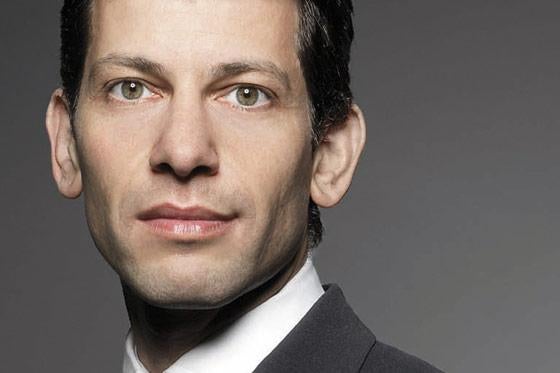
What gadgets do you rely on the most to get your work done?
My MacBook Pro and its ability to deliver my 422 RSS feeds (and counting).
Which couldn’t you do without?
iPhone/Kindle/Blackberry/HD camera. My colleagues would rather I live without the BlackBerry, as I have a tendency to email story suggestions at midnight. As for cameras, I’m still a film man. Time to upgrade, I know.
Which gadget has most changed the way that you now work?
The Gaggia cappuccino machine we’ve installed in the Wired office. No excuse not to be alert now.
Which web service is most important for you?
Netvibes for reading news feeds, Highrise for archiving dealings with contributors.
What software should no journalist not be using?
Blogger’s a pretty easy way to tell the world how to contact you, and to display your work – and it’s free.
What software do you use every day besides your web browser, email and word processor?
Spotify is proving a delicious way to listen to music, and Handbrake is a clever way to convert video to watch on an iPod. We’re doing a How To piece in Wired on how to use it.
What is your (and Wired’s) philosophy on free online content?
Your content is your best advertisement for you – as long as you still give people a reason to buy the print version. And beautiful magazines are a much better way to read long (up to 8,000-word) Wired features and enjoy glorious photospreads and infographics. We’re launching the magazine alongside wired.co.uk, which will complement the print content and add an extra dimension. The website will help build the brand and drive readers to the magazine, while the site will capitalise on the immediacy of digital publishing to bring daily news offerings among other content.
Will micropayments or “an iTunes for news” ever work?
God, I hope something works, but I imagine the industry’s overcompetitive nature will militate against a workable agreement on how collectively to market their news content. Meanwhile, Google mops up. But I do love newspapers, and those that really serve their constituencies do need to find a new economic model.
If you knew then what you know now – what would you have done differently 10 years ago?
Set up a boom-time magazine about the “new economy”, and sold it for $200m nine months later.
How do you consume your news?
Those 422 RSS feeds, the more thoughtful newspapers, an ever-growing pile of magazines in the bathroom, and the World Service.
What websites/blogs would you never (or as near as is possible) go a day without looking at?
Wired.com, metafilter.com, WSJ, NYT, Times, Guardian… er, do you have space for all 422?
What are the challenges for what is a small team at Wired making an impact against established magazine sites and blogs already covering this space?
We have separate print and digital teams, which, while collaborating on occasion and sharing vast knowledge and expertise, are united in their ambition to not just chronicle change, but create it, and this will make Wired unbeatable. And Wired will go to market with the support of a £2m first-year promotional spend, and the full might of Condé Nast behind it. And what an impressively professional company this is.
Is the UK tech scene big and distinct enough to warrant a separate edition of Wired?
We don’t see Wired as a tech magazine – it’s about ideas and innovation, whether in business, science and technology, culture or design. While following the mission of US Wired, we’ll be telling our own stories that have particular relevance to the UK audience – taking a world view while casting light on some of the extraordinary talent coming out of, for example, the UK animation industry. It’s our mission to inform readers of the innovations that will affect our lives at a very early stage – so they can benefit from that information in their jobs, or by being the smartest, most informed person in their circle. Plus, where else on the UK newsstand can you get a combination of ambitiously long-form original reportage, and stunning design and photography? There’s nothing like it here, and plenty of smart, curious readers are going to find that Wired fills an important gap.
Email pged@pressgazette.co.uk to point out mistakes, provide story tips or send in a letter for publication on our "Letters Page" blog

